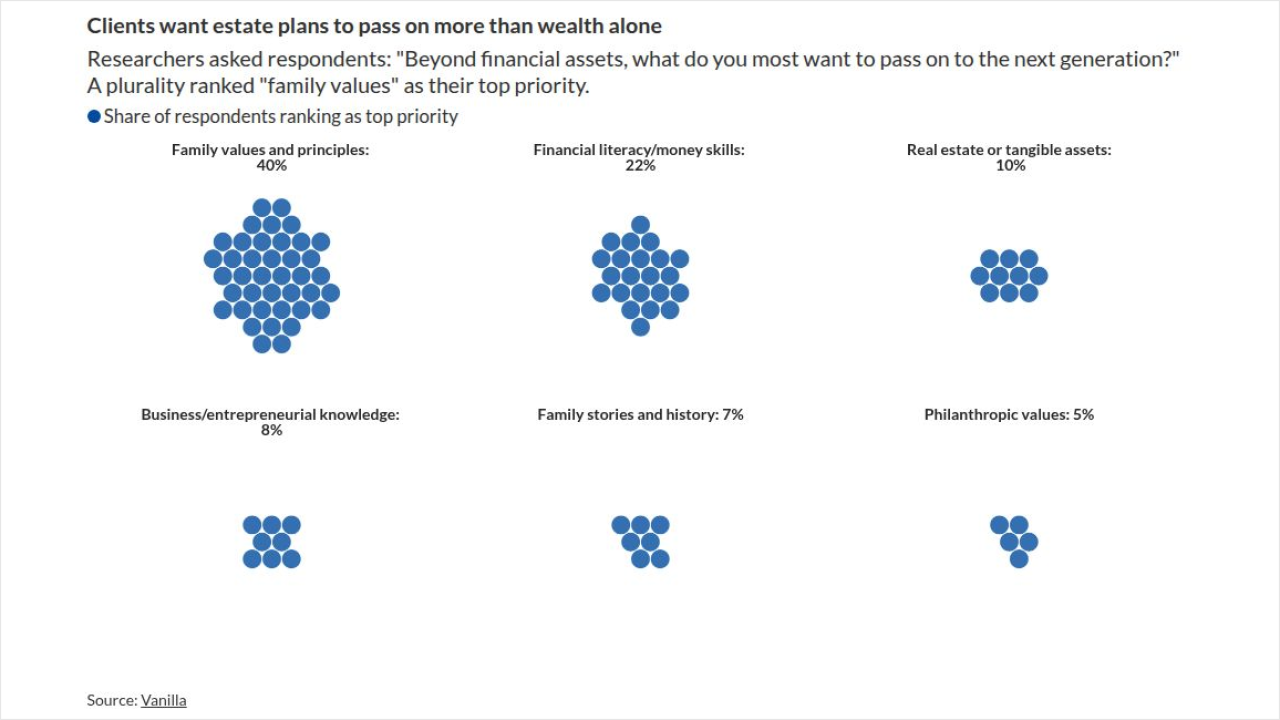When advisers start taking succession planning seriously, they begin treating their businesses like businesses.
After all, succession planning is a long-term process, not a one-time event. Firm owners, clients and the business itself will benefit from a clear plan.
Here are a few dos and don’ts that come with succession planning:
DO: Advisers need to ensure that their practice has a life beyond their own for the benefit of the clients. Having a succession plan in place eliminates clients’ hesitations to establish relationships with someone who they don’t think will be around very long.
DON’T: Firm owners shouldn't wait to do it. Waiting to strategize a succession until right before retirement is a mistake. For example, if a person wanted to retire at 60, it would be smart to start the process when he or she is 50.
DO: Involving a valuation analyst into the plans can be a benefit. The analyst will be able to create a methodical approach that is consistent with the value of the business. Having an outside view of the company from an independent analyst will ensure that the process is objective.
DON’T: It is key not to forget to include the people who will be the successors. As baby boomer advisers begin retiring and millennials start to take the reins, it is very important to do beneficiary planning and generational planning. If there aren't young advisers in a firm ready to carry the torch and even strengthen the flame, it is hard for the business to grow because clients will fear that no one will be around to take care of them.
DO: Document the strategies that have been identified for future use. Make sure that the plan is written down and can be easily referred to later.
DON’T: It is a common mistake to think that this will be easy or take little time. Firm owners, generally, don’t think about the fact that they will have to reinvent themselves one more time, because the things that made them successful before aren’t the same things that will serve them forever. They will have to change things, and the older they are, the less likely they are willing to change things.
Succession planning is imperative to long-term success. It is a deliberate method of ensuring that a practice has a life beyond the owner’s, for the benefit of the owner and the clients.
It isn't always an issue that many organizations address in a regular, efficient process. However, it is essential to the company’s well-being.
This story is part of a 30-30 series on smarter succession planning. It was originally published on Nov. 1.





